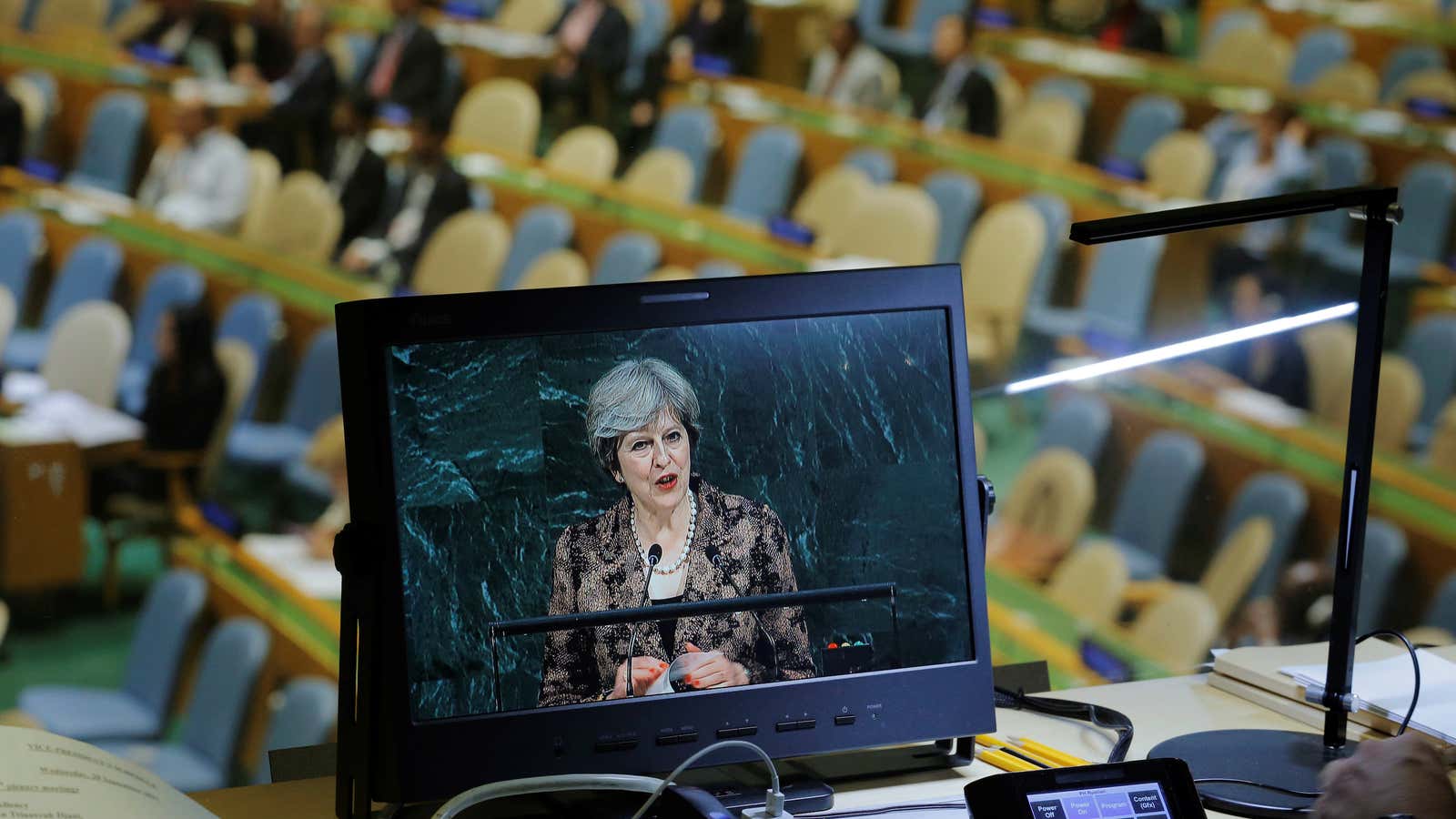There’s a lot of fanfare about Theresa May’s big Brexit speech today. In Florence, the British prime minister is going to spell out how she can help Brexit work more “smoothly,” namely by pitching a two-year transitional deal that takes effect after the UK officially leaves the EU in March 2019. The proposal is said to include payments worth €20-40 billion ($24-48 billion), which is tiny compared to what Britain actually owes, during that two-year period. The transition would allow a permanent trade deal between the bloc and the UK to be ironed out, the thinking goes.
The idea is to break a deadlock in Brexit talks. But not a single EU official is reportedly planning to attend the speech, even though the EU’s chief negotiator Michel Barnier is in Italy right now. Why? Well, because it doesn’t matter what May says publicly or what’s in government position papers, since these are mostly just wish lists of what Britain wants after Brexit.
Negotiations will not progress until Britain and Brussels come to an agreement over three issues, as stipulated by the EU: the Irish border, EU citizens rights, and the divorce bill. This is the procedure set out by the EU when Britain decided to leave the bloc.
According to Peter Catterall, a constitutional expert and professor at the University of Westminster:
“Essentially, it’s policy of the Tories [May’s ruling party] to have an a la carte approach, ‘we want a bespoke arrangement and you’ll do it for us because you need us,’ without offering much back. But it’s all about positioning. They all know they have to tackle the three issues in negotiations before talking about other elements of the deal.”
He adds that these high-profile speeches and papers are just a way of proving to the “head-banging nationalists” in her party that the government is trying to deliver on promises made about Brexit—even though it’s mostly window dressing.
The government could use some distractions right now. According to Barnier, the UK is backtracking on the EU divorce bill, one of the key components in the first stage of negotiations. “There is a problem of confidence here,” he said.
